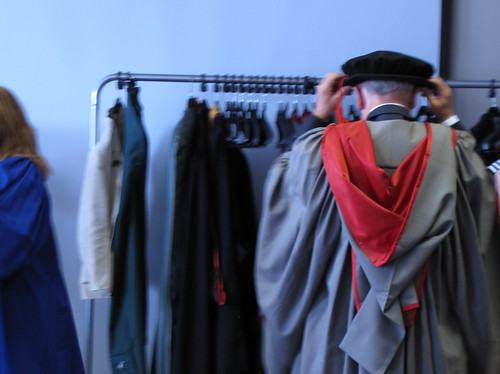Outside of the general curriculum of my doc program, I’m trying to pick up other texts from time to time. One of those texts has been “The Having of Wonderful Ideas” and Other Essays on Teaching and Learning by Eleanor Duckworth.
Duckworth, a professor at HGSE and student of Jean Piaget, retired from professing at the end of last year. I missed taking her class and continue to kick myself.
Before I get into the book, a moment of the evidence of the kind of character Duckworth possesses. Standing in line last year for the Harvard-wide commencement ceremony, my friend and I were joined by Duckworth dressed in full doctoral regalia. She told us she’d never walked with students before and figured this would be her last chance. She stood in the sun with us as we waited to file in and sat amongst us during the ceremony. To my knowledge, she was the only faculty member to do so and was driven simply by curiosity.
“The Having of Wonderful Ideas” opens the book and presents several key ideas for how people can approach teaching other people. Not the least of these is Duckworth’s statement, “The having of wonderful ideas is what I consider the essence of intellectual development.” I can’t imagine a better stated purpose for teaching and learning.
Below are some key points:
He was at a point where a certain experience fit into certain thoughts and took him a step forward…The point has two aspects: First, the right question at the right time can move children to peaks in their thinking that result in significant steps forward and real intellectual excitement; and, second, although it is almost impossible for an adult to know exactly the right time to ask a specific question of a specific child–especially for a teacher who is concerned with 30 or more children–children can raise the right question for themselves if the setting is right. Once the right question is raised, they are moved to tax themselves to the fullest to find an answer.
It’s a dangerous notion not all teachers are willing to adopt – that children might be able to ask the right questions or that teachers might not know the right questions.
Duckworth has some guidance for the creation of “the right time” for the development of these questions:
There are two aspects to providing occasions for wonderful ideas. One is being willing to accept children’s ideas. The other is providing a setting that suggests wonderful ideas to children–different idas to different children–as they are caught up in intellectual problems that are real to them.
and
When children are afforded the occasions to be intellectually creative–by being offered matter to be concerned about intellectually and by having their ideas accepted–then not only do they learn about the world, but as a happy side effect their general intellectual ability is stimulated as well.
and
If a person has some knowledge at his disposal, he can try to make sense of new experiences and new information related to it. He fits it into what he has. By knowledge I do not mean verbal summaries of somebody’s else’s knowledge.
The key sentiment here and throughout the text is listening to children – listening to their thinking, their questions, and the manners by which they work to answer their questions.
Doing this requires a relinquishment of the notion that all children should be doing and learning the same things at the same times based on their born-on date. It’s a tough idea to relinquish and an easy one to cling to when standards, textbooks and curricula are all built to suggest chronology, not development, should decide rule the day-by-day learning.
It’s not impossible to create such spaces in district with more stringent requirements. Subversion of the system need not mean destroying it. Much can be accomplished through co-opting language. If Duckworth is correct, the right questions will arise. If curricula are correct, the standards will be uncovered by the naturally-occurring questions.
Listening (to understand) is necessary.
For more on Duckworth, watch her HGSE commencement speech below or head to Constructing Modern Knowledge 2013 in NH July 9-12.
